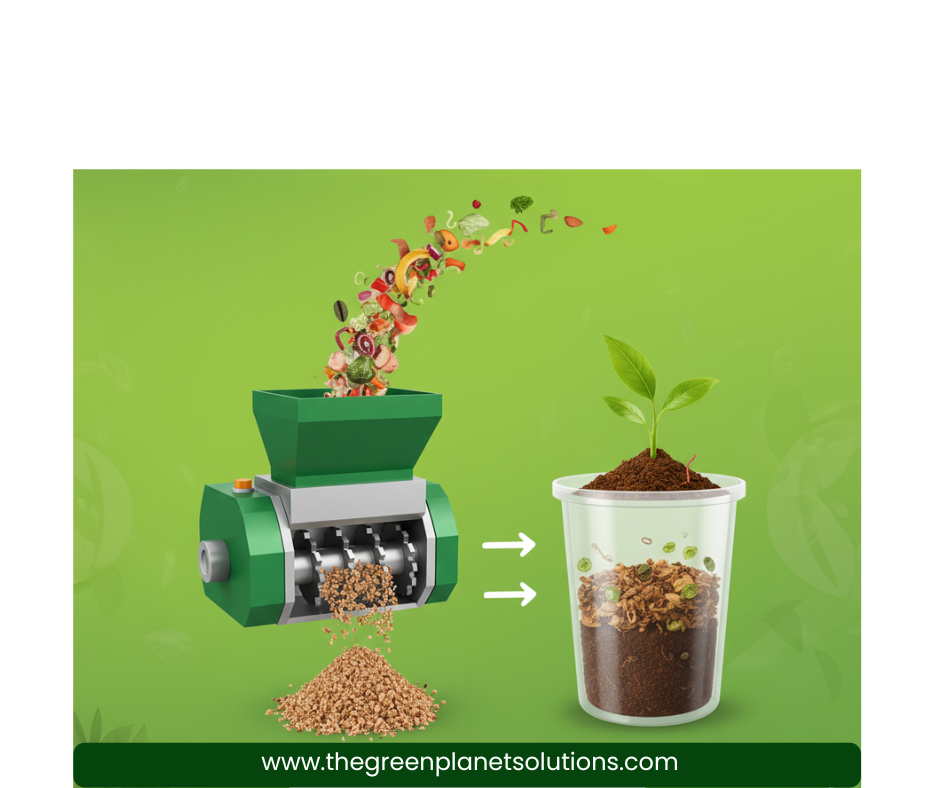Table Of Contents:
- Introduction
- How a Wet Waste Shredder Speeds Everything Up
- 1. More Surface Area for Microbes
- 2. Perfect Moisture Balance
- 3. Better Air Circulation
- 4. Saves Massive Amounts of Space
- 5. No More “Identify the Trash” Game
- Frequently Asked Questions (FAQs)
- Conclusion
Introduction:
Have you ever tried taking an entire apple at once? It is almost not possible! You would need to munch on it piece by piece in order for your stomach to be able to process it well, right? Composting is exactly the same! If you put large pieces of food waste into a composter, it would take years to decompose! This is why a wet waste shredder is the best place to start on your journey to becoming green!
When you shred the waste into very small pieces, you are basically “chewing” the food for the microbe bugs that help you compost. This one step alone will cause your composting to work twice as fast.
How a Wet Waste Shredder Speeds Everything Up
1. More Surface Area for Microbes
Microbes dig from the outside in. A whole watermelon skin contains very little area that can be attacked by microbes. However, if you put it in a wet waste shredder, you will end up with thousands of edges that will allow millions of microbes to dig simultaneously.
2. Perfect Moisture Balance
“As Wet As a Wet Paper Bag”
Wet waste, such as fruit peels or vegetables, is very wet. If it is left to sit in a large heap, the wetness is retained in a squishy mess. Shredding allows some of that moisture to be distributed evenly to keep the heap from smelling like a swamp.
3. Better Air Circulation
Compost must “breathe.” Large flat leaves or cabbage pieces may mat down, excluding oxygen. Shredded waste allows a small amount of air to be trapped, which secures oxygen exposure to all parts of the bin.
4. Saves Massive Amounts of Space
Raw organic waste is very bulky and takes up a lot of room in your society’s waste area. Shredding can reduce the volume of your trash by up to 70%. This means you can fit much more waste into a smaller composting machine.
5. No More “Identify the Trash” Game
Have you ever opened your compost pile and found that a whole banana peel from three weeks ago was still visible? By shredding, you know that everything is breaking down at the same rate. There won’t be any random leftovers inside your fertilizer either.
Frequently Asked Questions (FAQs)
Q: Is it noisy to use?
Most shredders today are built to be quite quiet enough for use in residential societies. It sounds like a heavy-duty kitchen blender.
Q: Can it shred bones and coconut shells?
Though it is a powerful shredder for wet waste, its intended use is for “soft” organic waste such as peels, trim, and garden waste. Large bones, for instance, should not be shredded and should instead be removed.
Q: How long does it take to shred the day’s waste?
To shred all the green waste collected in a day in a small society, it would take only around 15 to 20 minutes.
Conclusion
If you want to turn garbage to gold overnight, you obviously need the right equipment. A wet waste shredder is essentially a turbocharger for your compost heap. It makes life easier for the microbes, prevents the air from getting stale, and helps you save a lot of space. This is the best first move the planet and personal pockets can afford to make to become richer than ever before.


